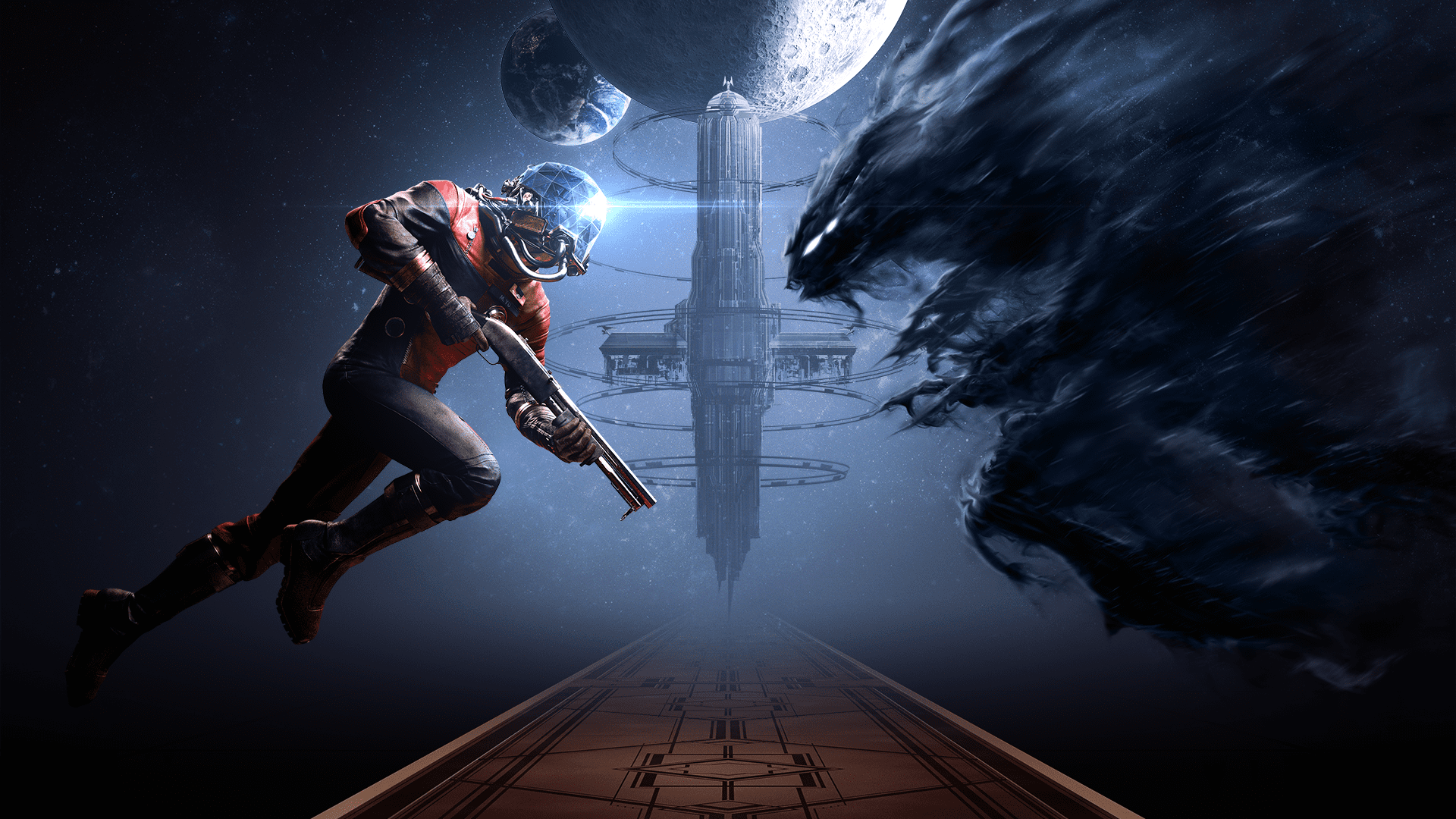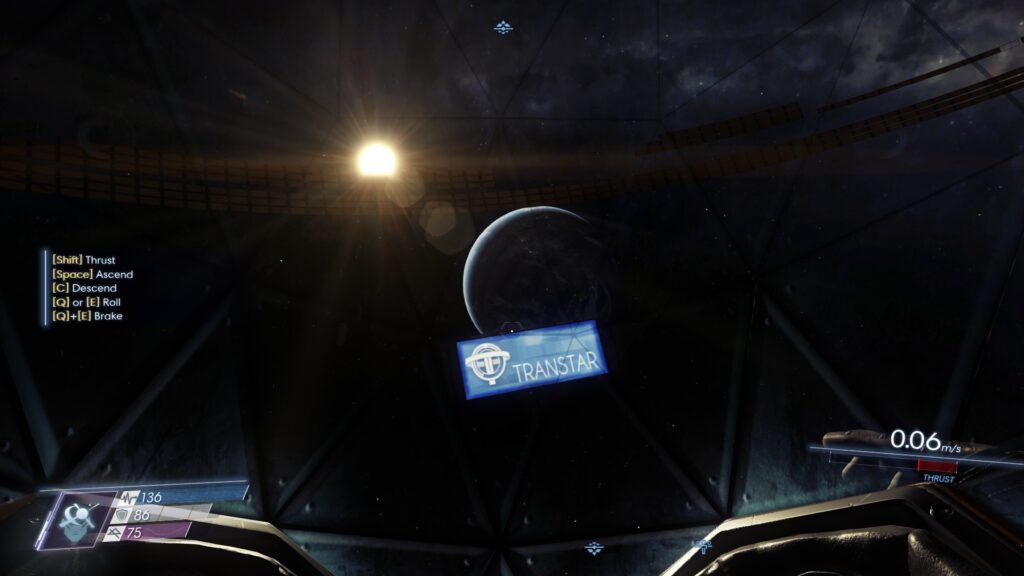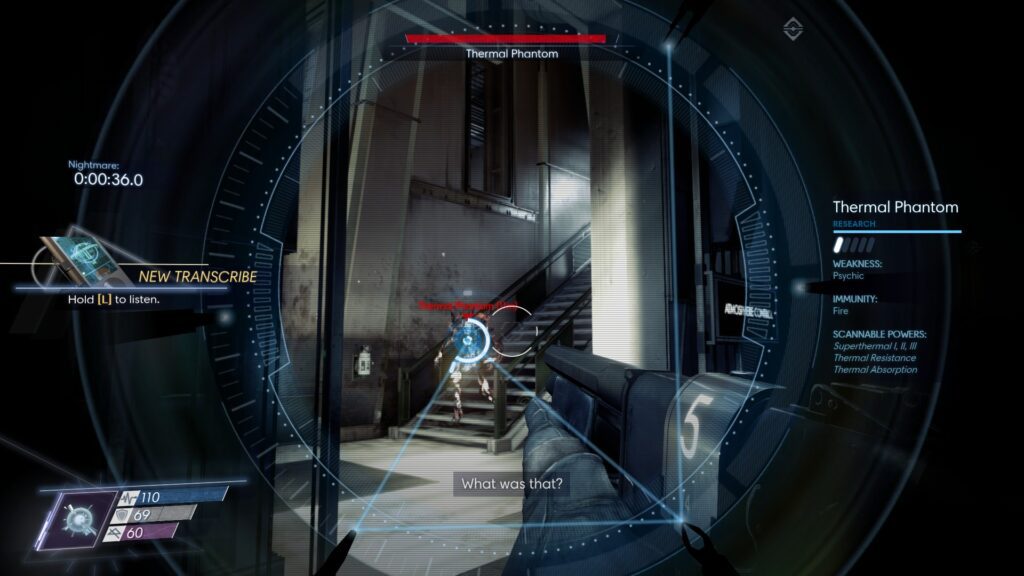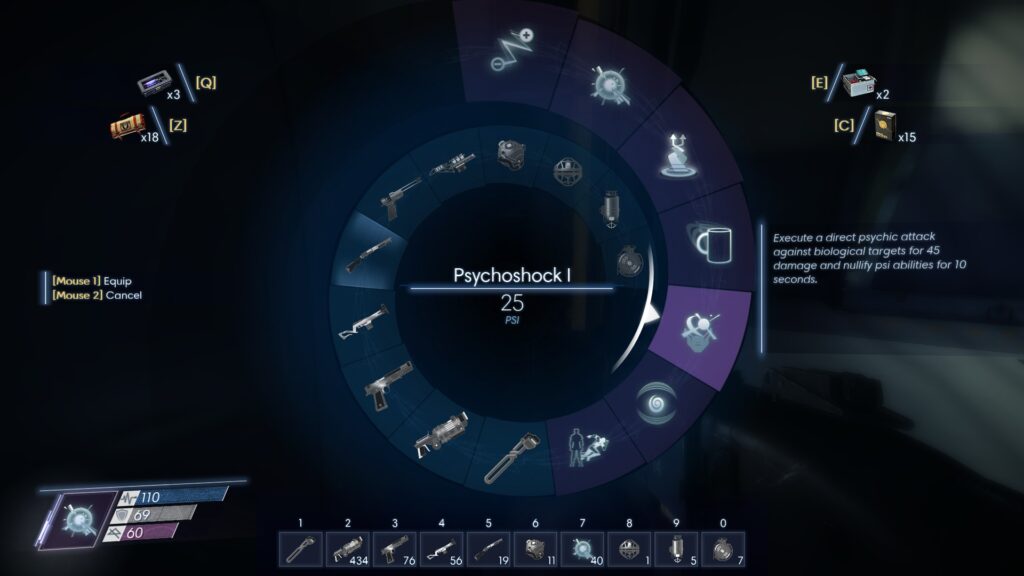
Space can be absolutely beautiful, and yet it’s also the perfect setting for a horror story. Video games are uniquely qualified to explore such a genre, as Prey (2017) wastes no time in demonstrating. The game comes from Arkane, the same studio that brought us such classics as Dishonored, and while it’s not doing anything particularly innovative, the balanced gameplay and story produces a beautifully deep and complex world.

First things first: What’s going on? The player character is Morgan Yu, a scientist working for a company called Transtar. You, or rather Yu, wakes up in their apartment for a normal day of testing. Then, when something inevitably goes wrong because this is a video game, you wake up the next morning on the same day and discover that something is, in fact, terribly wrong. Your apartment is not an apartment, but a simulation lab. After breaking out of the lab, you discover that you are actually aboard the space station Talos I, and aliens known as Typhons are loose all over the station. From there, you are presented with a host of options that include destroying the station to prevent the Typhon from reaching Earth, abandoning the station in an escape pod, or trying to salvage your old research with the help of your brother, Alex Yu. The story presents itself in the same manner that the Bioshock games did, where you slowly piece together what happened and discover secrets about the lives of the scientists aboard Talos I. There is no shortage of audiologs and hidden treasures, so lore enthusiasts will always be rewarded for exploring every nook and cranny of the station. However, Prey’s lore is much stronger than its actual plot, and this is mostly due to certain late-game events. That said, what lore you can discover is fascinating and deep, and well worth the exploration.

Of course, it wouldn’t be a science fiction game if it didn’t revolve around some ethical question that will surely come around to being relevant again as soon as our real world science progresses far enough. Prey has decided to throw itself at the question of genetic modification and memory tampering. Part of the upgrade systems allow you to gain alien powers and abilities, and the way it’s presented as an ethical question that’s extensively discussed by the game’s lore is, first of all, extremely clever. Secondly, the game allows and even encourages the player to make moral choices related to this predicament of tampering with memories and playing with lives, human or alien. The game leaves it up to the player what kind of answer Morgan Yu will have to this issue, so it doesn’t inherently take a hard stance. This implementation is extremely commendable because it makes excellent use of the interactions between player and world that are unique to games in order to get the player thinking. It also means the game doesn’t necessarily have a specific message or stance on the issues it presents to the player, making it hard to gauge whether it’s meant for the player to take a Catholic approach to the moral predicaments of the story. The game continues regardless of player choices, and there are multiple endings, so it’s more likely that the game’s only intention is to ask a question and let the player answer it in whatever way they feel is morally appropriate.
Speaking of alien powers, the player also has a few other tools available to them to help them survive while exploring Talos I. Your first weapon you come across is the wrench, in case you had any doubts about it taking inspiration from Bioshock. From there, you can acquire tech weapons with niche uses, a few guns for regular old shooting, and Typhon powers that can be unlocked by studying and researching your enemies. Powers can range in use from electric and fire damage to mimicking items to avoid detection to mind control, and all of them have some purpose. The player is really encouraged to think creatively about how to approach situations and study an enemy carefully before engaging. Of course, the game is set in space, so there are a few times when you’ll be fighting enemies and exploring while in zero gravity. It might take you a minute to get used to, but floating along in space is quite fun and relaxing.

Prey is a fantastically constructed world with deep lore and thoughtful combat. The game’s moral choice aspect largely dominates the story, and the player is encouraged to explore every facet of an objective before choosing how to proceed. The game as a whole isn’t doing very much that’s new or history-changing, but it doesn’t need to when it’s already balancing what it does have really well. Besides, it’s set in space. Space is awesome.
Scoring: 88%
Gameplay: 5/5
Story: 3/5
Graphics: 5/5
Controls: 4/5
Replayability: 5/5
Morality/Parental Warnings:
Language: Harsh language and swearing is used frequently by NPCs.
Sex/nudity: none
Violence: Some of the worst violence is implied rather than shown, but there are still dead bodies around the station and aliens that kill rather violently. Weapons are realistic to a certain extent but aren’t necessarily recognizable as real-world firearms.
Misc: The player character can become drunk.
